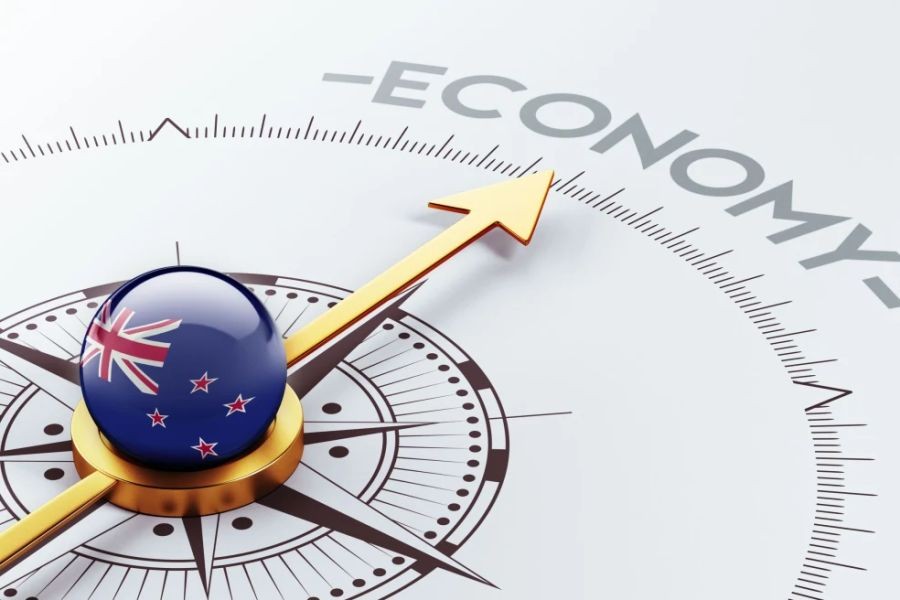In recent years, the economic relationship between New Zealand and Asia has become increasingly vital, with Asia representing a significant opportunity for Kiwi businesses. However, the journey to leveraging these opportunities is complex and requires strategic navigation. Here’s how New Zealand can strengthen its economic ties with Asia through ten actionable strategies.
1. Leverage Free Trade Agreements
New Zealand has been proactive in establishing Free Trade Agreements (FTAs) with several Asian countries, including China, South Korea, and ASEAN nations. According to the Ministry of Business, Innovation and Employment (MBIE), these agreements have already boosted New Zealand's exports by 20% over the last five years. Businesses should harness these agreements to reduce tariffs and open new export markets.
2. Embrace Cultural Understanding and Adaptation
Understanding cultural nuances is crucial for building successful business relationships in Asia. New Zealand companies can benefit from cultural training programs to better understand negotiation styles and business etiquettes unique to each Asian market. Statistics New Zealand reports that businesses with cross-cultural training have a 30% higher success rate in international ventures.
3. Invest in Technology and Innovation
Asia is a hub of technological innovation, and New Zealand must stay competitive by investing in research and development. Collaboration with Asian tech companies can lead to co-innovation and shared technological advancements. For example, New Zealand's tech exports to Asia have seen a 15% annual growth, as per NZTech's 2023 report.
4. Prioritize Sustainable Practices
As sustainability becomes a global priority, New Zealand businesses should align with Asian partners who value eco-friendly practices. This not only meets regulatory requirements but also enhances brand reputation. A Massey University study found that businesses adopting sustainable practices in their Asian operations saw a 25% increase in customer loyalty.
5. Strengthen Infrastructure and Connectivity
Improving infrastructure, particularly in logistics and digital connectivity, is essential for facilitating smoother trade relations with Asia. Initiatives like the Trans-Pacific Partnership and the Belt and Road Initiative offer pathways for enhanced connectivity. New Zealand's investment in these projects could lead to a 35% reduction in transportation costs, according to MBIE projections.
Case Study: Fonterra’s Success in China
Problem: Fonterra, a leading New Zealand dairy cooperative, faced challenges in penetrating the Chinese market due to high competition and regulatory hurdles.
Action: Fonterra invested in local partnerships and established joint ventures with Chinese dairy companies, focusing on understanding local consumer preferences and regulatory landscapes.
Result: Within three years, Fonterra's sales in China increased by 40%, and it became one of the top foreign dairy brands in the market.
Takeaway: Strategic partnerships and local market adaptation are critical for success in Asian markets.
6. Enhance Education and Skill Development
New Zealand should focus on developing a workforce skilled in international trade and cultural diplomacy. Partnerships between New Zealand universities and Asian institutions can facilitate student exchanges and joint research projects, fostering a new generation of professionals adept at navigating these markets.
7. Foster Government and Business Collaboration
Collaboration between the government and the private sector is crucial for identifying and acting on opportunities in Asia. The New Zealand Trade and Enterprise (NZTE) provides valuable resources and support for businesses looking to enter Asian markets. Engaging with these resources can significantly enhance market entry strategies.
8. Tailor Marketing Strategies
Effective marketing strategies must consider the diverse consumer preferences across Asia. Digital marketing, particularly through social media platforms popular in Asia, can significantly boost brand visibility. Companies like Air New Zealand have successfully used WeChat to engage with Chinese consumers, resulting in a 20% increase in brand engagement.
9. Mitigate Risks through Diversification
While Asia offers numerous opportunities, it's essential for New Zealand businesses to diversify their market exposure to mitigate risks associated with political and economic instability in any single country. Diversification can ensure more stable revenue streams and reduce dependency on a single market.
10. Monitor Regulatory Changes
Keeping abreast of regulatory changes in Asian markets is crucial for compliance and strategic planning. Regular consultations with legal and trade experts can help businesses navigate complex regulatory environments, ensuring compliance and avoiding potential legal pitfalls.
Pros and Cons of Strengthening Economic Ties with Asia
Pros:
- Access to Growing Markets: Asia houses some of the fastest-growing economies, offering vast consumer bases.
- Enhanced Innovation: Collaborating with Asian companies can lead to innovative solutions and technologies.
- Increased Export Opportunities: FTAs and open markets facilitate easier and more lucrative export possibilities.
Cons:
- Cultural Challenges: Misunderstandings can arise without proper cultural understanding and adaptation.
- Regulatory Hurdles: Different regulatory environments can present compliance challenges.
- Market Volatility: Economic fluctuations in Asia can impact trade stability and profitability.
Common Misconceptions
Myth: "All Asian markets are the same." Reality: Asia is incredibly diverse, with each country possessing unique cultural, economic, and regulatory environments.
Myth: "Entering Asian markets guarantees instant success." Reality: Success requires strategic planning, market research, and cultural understanding.
Myth: "FTAs eliminate all trade barriers." Reality: While FTAs reduce tariffs, non-tariff barriers such as regulations and standards still need careful navigation.
Future Trends and Predictions
By 2030, Asia is projected to account for over 50% of global GDP growth, making it a critical region for New Zealand's economic strategy (Source: McKinsey Global Institute). As digital transformation continues, e-commerce and tech collaboration will be key areas of growth. Additionally, the growing focus on sustainability will shape trade practices and consumer preferences, necessitating eco-friendly innovations and partnerships.
Conclusion
Strengthening New Zealand’s economic ties with Asia is not just an opportunity but a necessity in today’s globalized economy. By leveraging FTAs, embracing cultural understanding, investing in technology, and adopting sustainable practices, New Zealand can establish a robust economic presence in Asia. The future holds immense potential for growth and innovation, and Kiwi businesses must be ready to seize it.
What’s Next?
To ensure your business is prepared for these opportunities, consider engaging with NZTE resources, investing in cultural training, and exploring partnerships with Asian firms. Are you ready to take the next step in expanding your business into Asia? Share your thoughts and strategies in the comments below!
People Also Ask (FAQ)
- How does strengthening economic ties with Asia benefit New Zealand? Enhanced economic ties with Asia can lead to increased export opportunities, access to larger markets, and collaborative innovation, boosting New Zealand's overall economic growth.
- What are the key challenges for New Zealand businesses entering Asian markets? Key challenges include navigating diverse cultural environments, understanding complex regulatory frameworks, and managing market volatility.
- What industries in New Zealand are most likely to benefit from stronger ties with Asia? Industries such as agriculture, technology, tourism, and education are poised to benefit significantly from increased collaboration and trade with Asian markets.
Related Search Queries
- New Zealand Asia trade relations
- Free Trade Agreements NZ
- New Zealand exports to Asia
- NZ business strategies in Asia
- Asian market entry challenges
- Sustainable practices in international trade
- New Zealand technology exports
- NZ cultural training programs
- Asia-Pacific economic integration
- Future of NZ-Asia trade
































AnitraBeir
8 months ago